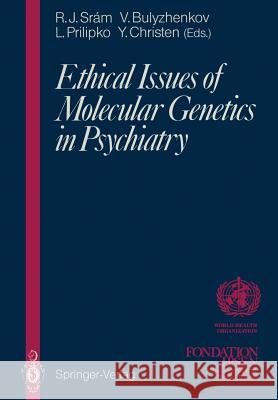Ethical Issues of Molecular Genetics in Psychiatry » książka
Ethical Issues of Molecular Genetics in Psychiatry
ISBN-13: 9783642764318 / Angielski / Miękka / 2011 / 177 str.
Over the past few years, genetics research has been in a phase of remarkably sustained and continuous revolution. The advent of "new genetics" of recombinant DNA has resulted in new discoveries occurring at a breath taking pace, many of which have important clinical implications, for example, in new approaches to the diagnosis and treatment of hemoglobinopathies, cystic fibrosis and some forms of muscular dystrophies. Recent findings of psychiatric relevance have included the localization of the genes for Huntington's chorea and the use of DNA probes in predictive testing. Advances have been achieved in the understanding of the molecular biology of Alzheimer's disease, and at least some familiar forms of the condition appear to be linked to a gene of chromosome 21. Taking into account current achievements in molecular genetics as well as future findings, it can be predicted that the application of new genetic technologies is likely to lead to ethical problems in practical psychiatry. In order to initiate discussions aiming to generate ideas and develop the background for future consensus in the complex area of ethics relating to the application of molecular approaches in the study of psychiatric disorders, the World Health Organization, in collaboration with the IPSEN Foundation, organized in Brno, Czechoslovakia, June 11-12, 1990, an international conference to review knowledge related to molecular genetic studies in psychiatry, with particular reference to ethical problems."











